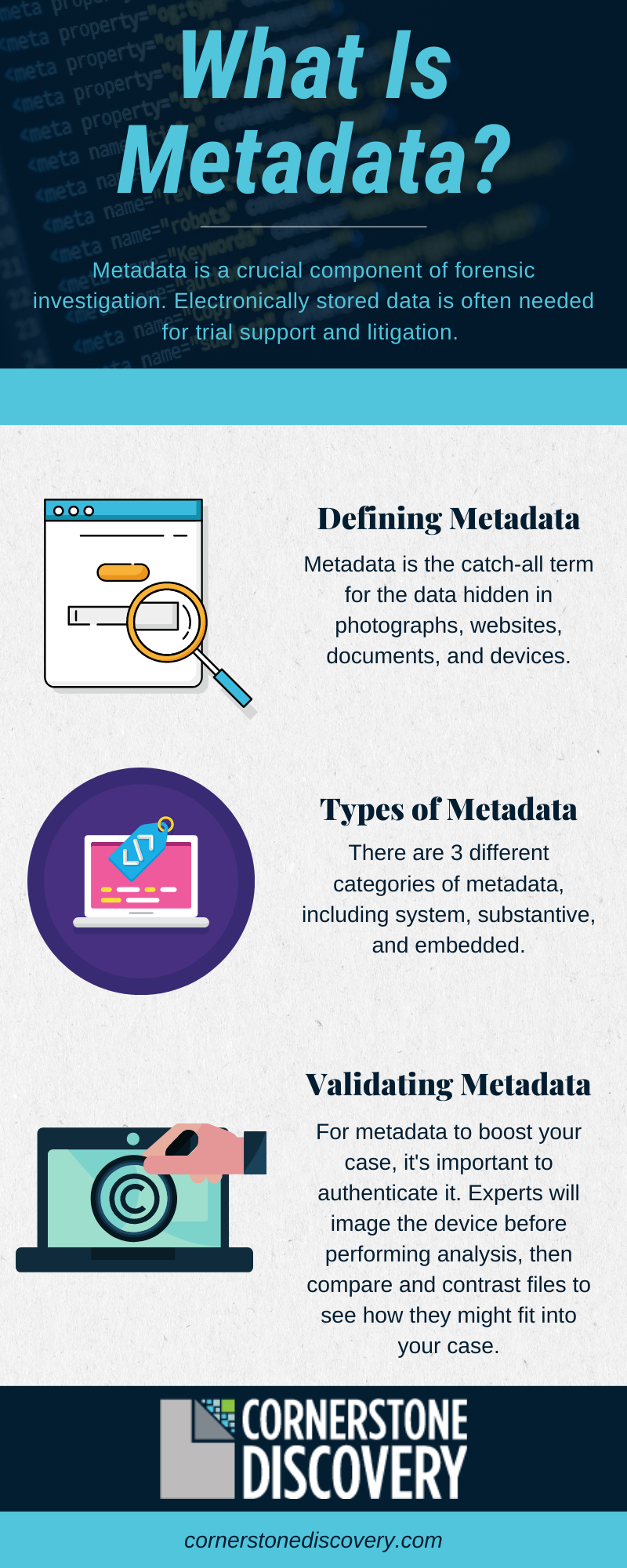What Is Metadata and Why Is It Critical to a Forensic Investigation?
The advent of electronically stored data has changed how forensic experts gather information for litigation and trial support, rendering metadata vital in the modern investigatory landscape. Metadata provides an abundant source of information regarding everything from authenticating documents to discovering when files were created. But what exactly is metadata — and what makes it so important?

Exploring Metadata
Metadata is a blanket term used to describe various hidden information created along with documents, photographs, and computer, smartphone, or tablet files. Metadata typically includes the date that files were created, times at which edits to the original file were made, timestamps from the most recent save, and information regarding the user who initially created the file. This information is crucial because it allows forensic data analysts to make accurate timelines and resolve civil and criminal disputes.
Types of Metadata Used in Forensic Investigations
Metadata can be categorized in various ways, including:
System metadata is automatically generated by a computer system. This includes information such as a document’s title, author, date, time of creation, and the dates on which it was modified.
Substantive metadata — also known as application metadata — reflects modifications to a document. It is embedded into the document it describes and remains when it is moved or copied.
Embedded metadata includes text, values, content, and other data inputted into a native file by a user but not typically visible to the user.
Assessing Metadata Authenticity
When litigating based on digital forensic analysis, the authenticity of the evidence presented must be trustworthy — and metadata helps confirm its provenance. For instance, files moved from their native environments are considered less trustworthy since opportunities exist to change that data if it’s not on the device on which it was created. For that reason, most digital forensic experts image devices before reviewing the data stored on them to keep all the information within the native environment. Additionally, having imaged copies of original devices enables experts to compare and contrast files derived from other sources to assess their legitimacy and efficacy in litigation.
Having authenticated documentation helps immensely for civil or criminal suits. When you need metadata examined for pending litigation, turn to the digital forensic experts at Cornerstone Discovery to collect, analyze, and preserve the information for your case. To learn more, contact us today.


